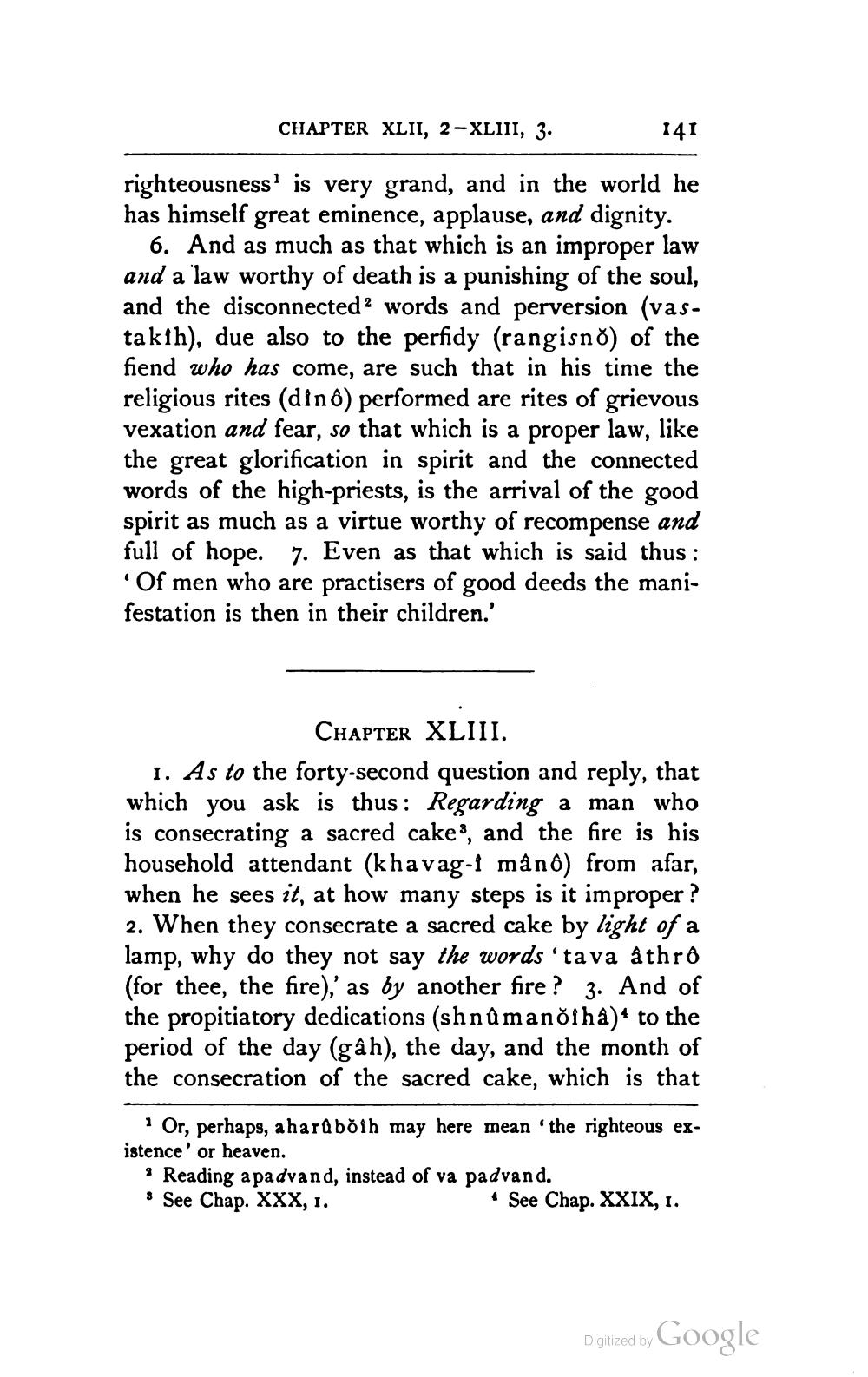________________
CHAPTER XLII, 2-XLIII, 3.
141
righteousness' is very grand, and in the world he has himself great eminence, applause, and dignity.
6. And as much as that which is an improper law and a law worthy of death is a punishing of the soul, and the disconnected? words and perversion (vastakih), due also to the perfidy (rangisno) of the fiend who has come, are such that in his time the religious rites (dino) performed are rites of grievous vexation and fear, so that which is a proper law, like the great glorification in spirit and the connected words of the high-priests, is the arrival of the good spirit as much as a virtue worthy of recompense and full of hope. 7. Even as that which is said thus : Of men who are practisers of good deeds the manifestation is then in their children.'
CHAPTER XLIII. 1. As to the forty-second question and reply, that which you ask is thus: Regarding a man who is consecrating a sacred cakes, and the fire is his household attendant (khavag-1 mânô) from afar, when he sees it, at how many steps is it improper ? 2. When they consecrate a sacred cake by light of a lamp, why do they not say the words 'tava athrô (for thee, the fire),' as by another fire ? 3. And of the propitiatory dedications (sh nûmanõiha)* to the period of the day (gâh), the day, and the month of the consecration of the sacred cake, which is that
* Or, perhaps, a harûbõih may here mean the righteous existence' or heaven.
Reading a padvand, instead of va padvand. * See Chap. XXX, 1.
• See Chap. XXIX, 1.
Digitized by Google




